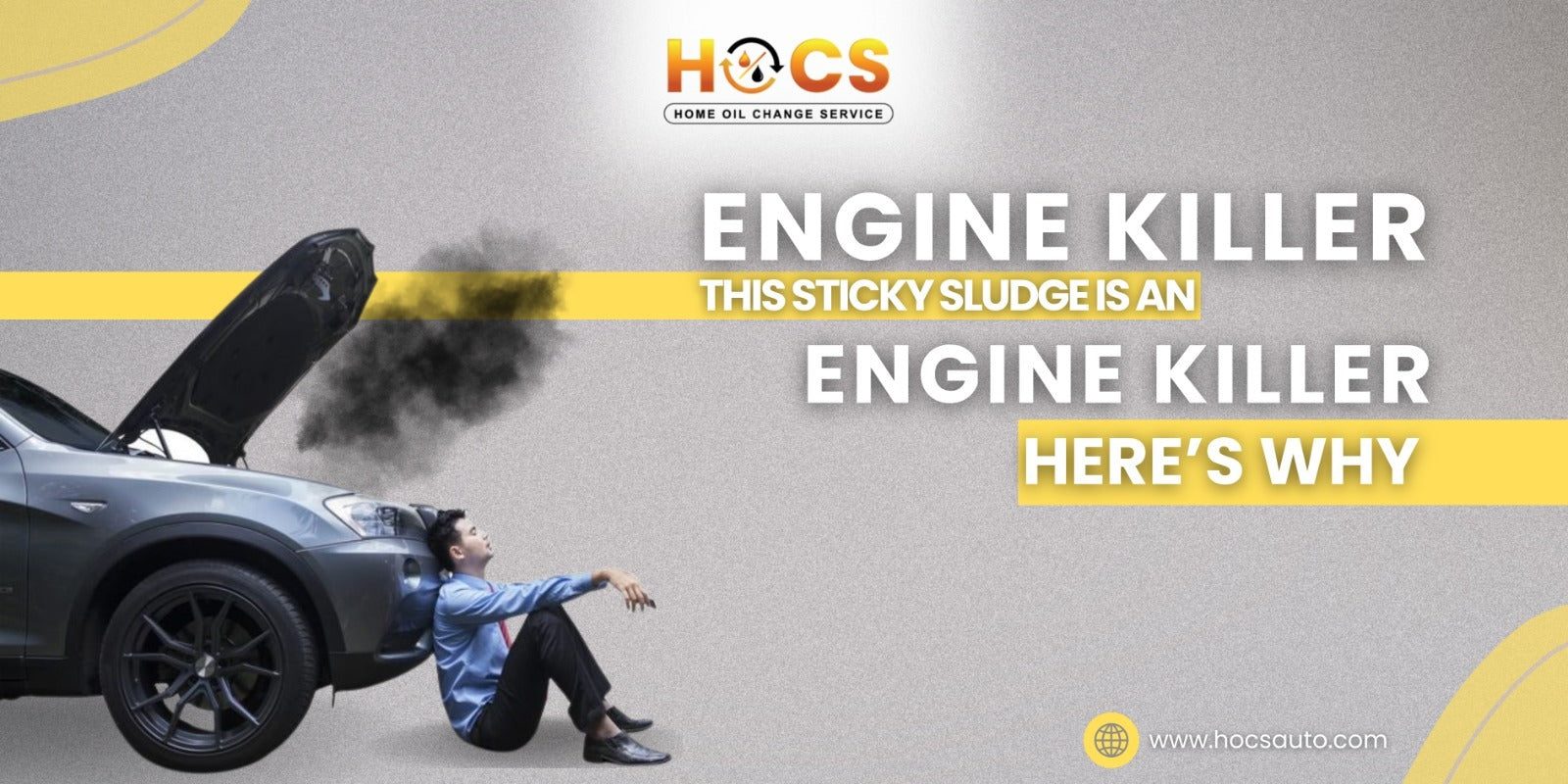Ever imagined your engine oil turning into a curd-like mess that silently eats away at your car’s health? It sounds dramatic — but it’s a very real issue faced by thousands of drivers who delay oil changes. Especially in cities like Karachi, where high temperatures and traffic congestion take a toll on your vehicle, neglecting timely oil changes can quickly turn routine maintenance into a costly repair nightmare.
Let’s explore how overused oil transforms into damaging sludge, why it shortens your engine’s life, and how you can easily avoid it — without even leaving your home.
What Happens When You Overuse Engine Oil?
Engine oil is your engine’s lifeline. It lubricates, cools, and cleans the internal components of your car’s engine. But like anything else, engine oil wears out over time. When left unchanged past its recommended service interval, it starts to degrade and lose its protective properties.
Overused engine oil:
-
Breaks down chemically under high heat.
-
Accumulates contaminants like dirt, fuel, and metal shavings.
-
Becomes thicker and sludgy.
-
Loses its ability to properly lubricate moving parts.
One of the worst outcomes of this degradation is the formation of a "curd-like" sludge — a gelatinous mix that sticks to engine components and chokes its performance.
What is This “Curd-Like” Engine Sludge?
This isn’t a term from a chemistry textbook — mechanics and auto technicians often use "curd-like" to describe the thick, gooey deposits that form when engine oil is far past its expiration.
Scientifically, this sludge results from oxidation, thermal breakdown, and contamination of the oil. Over time:
-
Heat from the engine causes oil molecules to break down.
-
Moisture and fuel vapors mix with oil, creating acidic byproducts.
-
Carbon deposits and combustion byproducts accumulate.
This mixture eventually turns from a smooth liquid to a lumpy, semi-solid substance that resembles cottage cheese or curd.
Think of it as cholesterol for your engine — it clogs everything.
Why Curd-Like Engine Sludge is a Serious Threat
You might be wondering: “Is it really that big of a deal?” Absolutely. This sludge doesn’t just sit there — it causes a domino effect of problems inside your engine:
1. Restricted Oil Flow
Sludge clogs oil passages and restricts flow to critical engine parts. This leads to increased friction and heat, which accelerates engine wear.
2. Poor Lubrication
With the oil's viscosity compromised, parts like pistons, bearings, and camshafts lose the slick protection they need — leading to metal-on-metal contact and rapid degradation.
3. Overheating
Since the oil no longer cools the engine properly, temperatures skyrocket. Overheating is one of the top causes of engine failure.
4. Loss of Power & Efficiency
Dirty oil and sludge lead to engine knocking, reduced acceleration, and poor fuel economy. Your car simply won’t perform like it used to.
5. Permanent Engine Damage
In severe cases, sludge causes engine seizure — where moving parts get so gummed up they stop functioning altogether. This often results in complete engine replacement, which can cost thousands.
Warning Signs of Oil Sludge in Your Engine
If you’re not sure whether your oil is in good shape, look out for these early symptoms of oil sludge buildup:
-
Oil change light or check engine light stays on
-
Unusual ticking or knocking sounds
-
Poor fuel economy
-
Overheating
-
Dark, thick oil on the dipstick
-
Visible sludge under the oil cap
Real-Life Scenario: The Cost of Neglect
Let’s say you skipped three oil changes. Your 5W-30 synthetic blend, meant to last 5,000 km, is now being run for 15,000 km. The result? A thick, dark, curd-like paste forms in your engine. Your oil pump struggles, metal grinds on metal, and before you know it — you’re facing a seized engine.
Estimated repair cost? Anywhere from PKR 100,000 to 500,000 depending on your car model.
All of this, just because a few oil changes were missed. The cost of neglect is massive — but completely preventable.
How to Prevent Engine Sludge (and Protect Your Vehicle)
Avoiding sludge buildup is surprisingly simple:
✅ Stick to Regular Oil Change Intervals
Follow your vehicle’s maintenance schedule religiously — usually every 5,000 to 10,000 km, depending on oil type and driving conditions.
✅ Use the Right Oil
Using the correct viscosity and grade recommended by your manufacturer is critical. Don’t skimp on quality.
✅ Monitor Oil Quality
Check your oil every 2–4 weeks. Look at the color and feel. If it’s dark, gritty, or smells burnt — change it.
✅ Flush Your Engine Periodically
Ask your mechanic about performing an engine flush if you suspect buildup. It clears out internal sludge and restores oil flow.
✅ Avoid Short Trips
Engines don't reach optimal temperatures on short trips, leading to condensation and sludge. Combine errands or take longer routes when possible.
How Climate Affects Oil Breakdown
Hot climates (like Pakistan’s summer) speed up oil degradation. In such regions:
-
Oil oxidizes faster.
-
Engines run hotter.
-
Sludge builds up quicker.
If you’re driving in these conditions, consider more frequent oil changes (e.g., every 3,000–5,000 km).
Final Thoughts: Don’t Wait for Damage
Engine oil sludge is like silent poison. You won’t see it — but it’s there, slowly killing your engine’s performance and lifespan. The curd-like structure might sound harmless, but its effects are devastating.
Regular maintenance is not a cost. It’s an investment.
Let HOCS Keep Your Engine Clean and Healthy
If your car’s oil is overdue for a change, don’t wait for the damage to start. HOCS – Home Oil Change Service – brings professional-grade oil change services right to your doorstep anywhere in Karachi.
✅ No waiting in queues
✅ No unnecessary workshop visits
✅ Just expert service, done at your home
Protect your engine, save time, and avoid costly repairs — book your next oil change today with HOCS.
👉 Visit www.hocsauto.com or call us now to schedule your home oil change.
Your car deserves better. So does your time.

